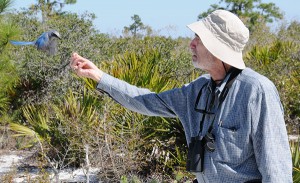Behaving Against Our Interest: Paul Ehrlich (#110)
Today it could be argued that human beings daily act against our own self-interest. How? Biologist Paul Ehrlich and fellow scientists tell us we are expanding our population and economy beyond the Earth’s carrying capacity– at our peril. Why do we insist on continuing?
Humanity in the last few hundred years has become the dominant animal on this planet. We are changing…the atmosphere to the point where we’re threatening our very sustainability, we are now mobilizing most minerals more rapidly than the natural forces of erosion by wind and water, we are causing an extinction of the working parts of our life support systems – that is the other animals, and the plants, and the microorganisms of the planet – at a scale unseen in the last sixty five million years…changing the ecology and evolution of every organism on the planet, every plant, animal, and microorganism, including ourselves.”
 Ehrlich has been a keen observer of human behavior for over 50 years, and he thinks “we need a millennium assessment of human behavior.” If we can understand how we behave, and why we behave that way, perhaps we can figure out how to behave as though we want to hang around another thousand years.
Ehrlich has been a keen observer of human behavior for over 50 years, and he thinks “we need a millennium assessment of human behavior.” If we can understand how we behave, and why we behave that way, perhaps we can figure out how to behave as though we want to hang around another thousand years.
Ehrlich is best known for authoring The Population Bomb, published in 1968 at the suggestion of the Sierra Club’s first executive director, David Brower. Paul’s wife, Anne Ehrlich, co-authored the book (though the publisher insisted only Paul’s name adorn the book). Paul and Anne preferred a different title, Population, Resources and Environment, as the book was about much more than human population. The book offered dramatic warnings about the impact of the expanding scale of the human enterprise, which included not just the number of people on the planet, but  also their behavior – levels of consumption and the size of their economies.
also their behavior – levels of consumption and the size of their economies.
Growth boosters have criticized Paul Ehrlich since the 1960s. Some claim his ideas have been disproved and discredited, but generally those detractors have been economists (and not all economists). Ehrlich is a serious scientist with an impressive command of the facts, and the scientific community continues to publish and devour his work. His frank and direct approach, and colorful way with words, have continued to make him a lightning rod for discussion of a question that is central to the notion of sustainability of human civilization:
Can technology and innovation perpetually expand the carrying capacity of our planet?
In this 2007 interview, only very brief portions of which have ever been released, Paul Ehrlich shares his opinions on population, economics, hunger and poverty, and climate change. He takes aim at politicians, economists, television news, and human beings in general.
It’s not a matter of needing more science to know what do. We can use more science, but the big problem is why is there such a gap between what the scholarly community knows and what the politicians and public know and are willing to do anything about.”
This is the tenth in our series of podcasts and radio programs. We post a new podcast episode every Thursday. Be sure to subscribe! You can find us at iTunes, SoundCloud and Stitcher, or sign up to get an email every Thursday with the newest episode. If you like what you hear, please support this project with a tax-deductible donation. Your comments are invited below. Why do you think we behave in ways that guarantee our own extinction?
More About Paul R. Ehrlich:
Bing Professor of Population Studies, Stanford University
President, Center for Conservation Biology
Co-founder, Millennium Alliance for Humanity and the Biosphere
A few of the awards earned by Paul Ehrlich over the course of his career:
The John Muir Award of the Sierra Club
The Gold Medal Award of the World Wildlife Fund International
The Crafoord Prize, awarded by the Royal Swedish Academy of Sciences
The Volvo Environmental Prize, 1993
The United Nations Sasakawa Environment Prize, 1994
The 1st Annual Heinz Award in the Environment (with Anne Ehrlich), 1995
The Blue Planet Prize, 1999
The Eminent Ecologist Award of the Ecological Society of America, 2001
The Distinguished Scientist Award of the American Institute of Biological Sciences, 2001
Fellow of the Royal Society of London 2012
He has written numerous books of interest. Here are just a few:
The Annihilation of Nature: Human Extinction of Birds and Mammals (with Gerardo Ceballos and Anne Ehrlich)
The Dominant Animal: Human Evolution and the Environment (with Anne Ehrlich)
Humanity on a Tightrope: Thoughts on Empathy, Family, and Big Changes for a Viable Future (with Robert Ornstein)
One With Nineveh: Politics, Consumption, and the Human Future (with Anne Ehrlich)
Human Natures: Genes, Cultures, and the Human Prospect
Betrayal of Science and Reason: How Anti-Environmental Rhetoric Threatens Our Future (with Anne Ehrlich)
Ecoscience: Population, Resources, Environment (with Anne Ehrlich and John Holdren)
The Population Explosion (with Anne Ehrlich)




Indeed, I had no idea that there were so many people who take their shoes off to count past 10.
As far as I can tell, most people don’t understand the population part of the problem — and that includes many academics! It actually takes a little effort for the nonspecialist to gain a respectable understanding of ecology and evolution. I note that in the high schools of Nova Scotia they DON’T teach evolution and they substitute environmental platitudes for ecology.
As for population leveling off, it seems that misery will be the cause of that. That is the thing that pisses me off. We should be talking about what population level enables the best quality of life, for ourselves and our planetmates. Instead we are arguing about how many people can be fed!
And another beef: It is long past time for spell checkers to recognize “planetmates” as a legitimate word!